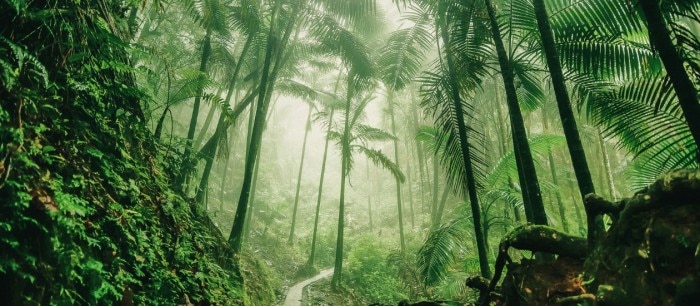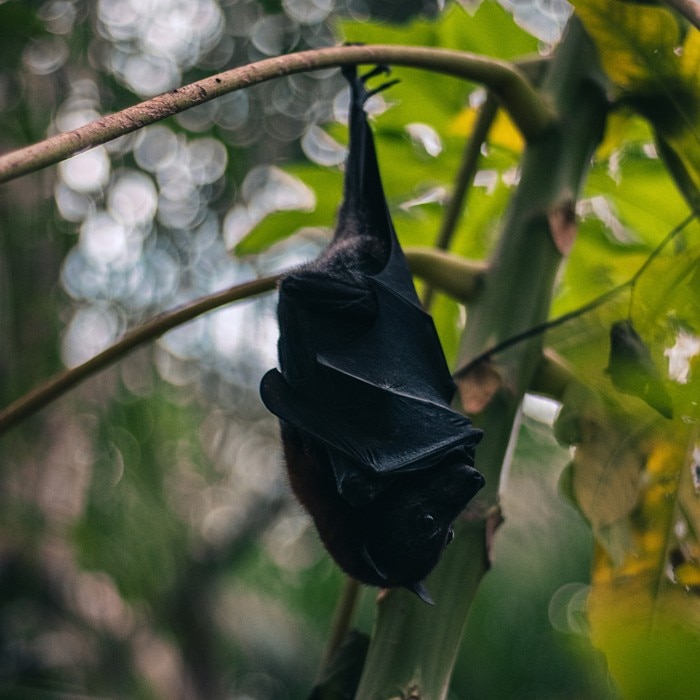MENU
US | USD
-
-
-
-
- Forum Labo 2025
- Advanced Therapies Week (ATW) 2025
- SLAS Europe 2025
- Bioprocessing Summit Europe 2025
- Medlab Middle East 2025
- SLAS International 2025
- Biologics World Nordics 2025
- ASIA LABEX: The Lab Show 2025
- BioProcess International Europe 2025
- ISEV 2025
- Future Labs Live 2025
- Cell 2025
- ASIA LABEX: The Lab Show 2025
-
-
-
-
- Forum Labo 2025
- Advanced Therapies Week (ATW) 2025
- SLAS Europe 2025
- Bioprocessing Summit Europe 2025
- Medlab Middle East 2025
- SLAS International 2025
- Biologics World Nordics 2025
- ASIA LABEX: The Lab Show 2025
- BioProcess International Europe 2025
- ISEV 2025
- Future Labs Live 2025
- Cell 2025
- ASIA LABEX: The Lab Show 2025
US | USD
-
- Benchtop Centrifuges
- Floor-Standing Centrifuges
- Refrigerated Centrifuges
- Microcentrifuges
- Multipurpose Centrifuges
- High-Speed Centrifuges
- Ultracentrifuges
- Concentrator
- High-Speed and Ultracentrifuge Consumables
- Centrifuge Tubes
- Centrifuge Plates
- Device Management Software
- Sample and Information Management
-
- All Pipettes, Dispensers & Automated Liquid Handlers
- Mechanical Pipettes
- Electronic Pipettes
- Multi-Channel Pipettes
- Positive Displacement Pipettes & Dispensers
- Automated Pipetting
- Bottle-Top Dispensers
- Pipette Controllers
- Pipette Tips
- Automation Consumables
- Dispenser & Pipette Accessories
- Automation Accessories
- Dispenser & Pipette Services
No results found
Search Suggestions

Chasing Scary Viruses in the Heart of the Jungle
The jungle is home to some of the planet's deadliest viruses. Meet a virologist studying them in their native habitat.
Their names alone spread fear and terror among the public: most people would prefer to have as little contact as possible with dangerous viruses such as Ebola, Marburg Virus or Lassa - and travel increasingly infrequently to environments where these and possibly many other comparable viruses can be found. For the Spanish virologist Prof. César Muñoz-Fontela, PhD, on the other hand, it is exactly such areas that are the preferred destinations of his field trips.
After studying in Madrid, Muñoz-Fontela did postdoctoral research at the Mount Sinai School of Medicine in New York City. Today, he is head of the research group “Virus Immunology" at the Bernhard Nocht Institute for Tropical Medicine, located in Hamburg: “Our laboratory studies viral hemorrhagic fevers such as Ebola virus disease and Lassa fever.” The highly adaptable RNA viruses replicate in animals but can also be transmitted to humans and cause so-called zoonoses. “Our main focus is on basic research, trying to understand immune responses to these diseases. However, during an outbreak, we also contribute to different aspects of outbreak control such as diagnostics and operational research.”
Time and again, the virologist and his team are traveling to the tropical jungles to train local doctors in dealing with highly dangerous diseases such as Ebola or Lassa fever. Sometimes, Muñoz-Fontela and his expert group also accompany and support an outbreak response under the umbrella of WHO. “Being specialists in these kinds of viruses we feel obliged to contribute to outbreak control whenever we can. My first epidemic was in 2012, and I have been going to different places in Africa once or twice a year ever since. Now due to COVID, these trips have stopped but I guess they will resume at some point soon.”
Working mostly on the human aspect of the disease, the virologist collects blood samples from survivors to look at memory immune responses. “We have ongoing projects in Africa, studying for example long-term immunity in survivors or we investigate ecological aspects to understand how these viruses are maintained in nature and where they come from.”
After studying in Madrid, Muñoz-Fontela did postdoctoral research at the Mount Sinai School of Medicine in New York City. Today, he is head of the research group “Virus Immunology" at the Bernhard Nocht Institute for Tropical Medicine, located in Hamburg: “Our laboratory studies viral hemorrhagic fevers such as Ebola virus disease and Lassa fever.” The highly adaptable RNA viruses replicate in animals but can also be transmitted to humans and cause so-called zoonoses. “Our main focus is on basic research, trying to understand immune responses to these diseases. However, during an outbreak, we also contribute to different aspects of outbreak control such as diagnostics and operational research.”
Time and again, the virologist and his team are traveling to the tropical jungles to train local doctors in dealing with highly dangerous diseases such as Ebola or Lassa fever. Sometimes, Muñoz-Fontela and his expert group also accompany and support an outbreak response under the umbrella of WHO. “Being specialists in these kinds of viruses we feel obliged to contribute to outbreak control whenever we can. My first epidemic was in 2012, and I have been going to different places in Africa once or twice a year ever since. Now due to COVID, these trips have stopped but I guess they will resume at some point soon.”
Working mostly on the human aspect of the disease, the virologist collects blood samples from survivors to look at memory immune responses. “We have ongoing projects in Africa, studying for example long-term immunity in survivors or we investigate ecological aspects to understand how these viruses are maintained in nature and where they come from.”
Read more
Read less

However, he also collects specimens of yet unknown viruses from animals, as the jungle is a particularly exciting habitat for virologists, Muñoz-Fontela explains: “We have also recently started to work with bats, so we capture bats, take a small swab or blood sample and we release them again. These viruses are out there. If you restrict yourself to studying viruses in the high containment laboratory you will learn how to deal with the virus in your environment, but you will never be in the environment of the virus.”
Safety always comes first, both on-site and during transport of the collected specimens - after all, at this point, no one knows exactly what danger might be posed by the as yet unknown viruses. “Awareness is the main safety barrier in the field, but of course we use face masks, goggles, double gloves, Tyvek suits etc.” Unlike the BSL-4 lab , of course, in the jungle there are no airlocks for decontamination, but there are specific protocols on how to put the PPE clothes on and how to take them off, Muñoz-Fontela explains. “We follow these protocols strictly and actually also provide training to local personnel. Heat may be a problem, but we work in turns and try to stay hydrated.”
Safety is the top priority
Safety always comes first, both on-site and during transport of the collected specimens - after all, at this point, no one knows exactly what danger might be posed by the as yet unknown viruses. “Awareness is the main safety barrier in the field, but of course we use face masks, goggles, double gloves, Tyvek suits etc.” Unlike the BSL-4 lab , of course, in the jungle there are no airlocks for decontamination, but there are specific protocols on how to put the PPE clothes on and how to take them off, Muñoz-Fontela explains. “We follow these protocols strictly and actually also provide training to local personnel. Heat may be a problem, but we work in turns and try to stay hydrated.”
Read more
Read less

How to prepare for an expedition
In the preliminary stages of an expedition into the jungle, virologists have a lot to do, organize and prepare: “Before we embark on an expedition, we basically test all the equipment, make also sure we bring all the materials needed, arrange pickup from the airport, transportation etc.” Depending on the country they may also need to take security precautions. “Personal items that must not be forgotten are e.g. mosquito nets, mosquito repellent, medicines, local phone and local sim cards.”
Liquid handling in the jungle
“The handling of liquids is the basis of the samples we collect”, says Muñoz-Fontela. “Thus, it is very important to manage to collect accurate samples. And we need to manage a lot of infectious liquid waste as well.” For safety reasons, the virology team always uses plastic vials. “If possible, with screw caps – also for safety. As our samples are usually transported in dry ice, the tubes must withstand cryopreservation without cracking.” To prevent dangerous viruses from being released en route, Muñoz-Fontela always works with professional transport couriers such as World Courier. “They ensure maintenance of cold chain.”
Pipetting in the wild
Pipetting a lot in the field, the virologists have to do everything they can to keep measurement errors as low as possible. When it comes to choosing the right equipment, weight, versatility and ergonomics are important factors, Muñoz-Fontela admits. But the top priority must always be reliability, he says. “Normally, we use single channel automated pipettes in the field. For specific applications (e.g. ELISA) we may choose multi-channel pipettes. The pipettes are calibrated before we leave and of course everyone in the team has a lot of experience in laboratory already. If we do PCR , we keep a pipette set exclusively for that.”
Managing environmental factors
“Humidity and temperature play a role in everything we do. Not only pipetting is affected, but also other, even more critical processes such as the PCR pipeline or flow cytometry,” notes Muñoz-Fontela. “We keep records of temperature and humidity and have adequate labs with air conditioning for more complex processes. So far, we have helped to build three laboratories that are capable of conducting more complex research in Africa.”
Lessons for lab work
What can be learned from his work under extreme conditions, is a different perspective on the own work, Muñoz-Fontela reflects. “I think that high-end laboratories are not essential to conduct meaningful research. And that scientists can adapt to different working environments. Transportation in Africa is always a scary experience, but something that you learn a lot from too.”
Prof. César Muñoz-Fontela, PhD, is a Spanish microbiologist and virologist, living and working in Hamburg. After studying in Madrid, Muñoz-Fontela did postdoctoral research at the Mount Sinai School of Medicine in New York City. From the start of 2018, he has headed the research group "Virus Immunology" Group of the German Center for Infection Research at the Bernhard Nocht Institute for Tropical Medicine.
Read more
Read less
Related Documents
- The Eppendorf Research® plus pipette
- Reproducibility and Speed in PCR
- Impact of pipetting techniques on precision and accuracy
- Calibration and Adjustment of Dispensing Systems in the Laboratory
Read more
Read less
